# February 13: A Day of Historic Significance
February 13 stands as one of history’s most eventful days, witnessing the rise and fall of empires, groundbreaking discoveries, and moments that shaped our modern world across centuries of human achievement.
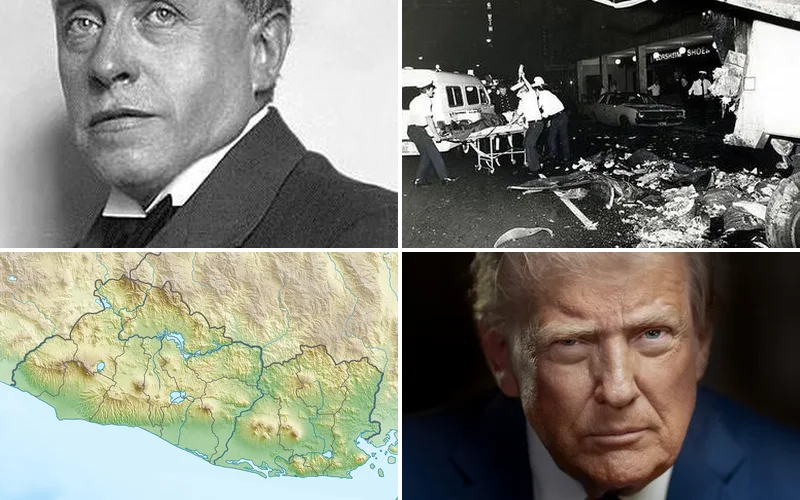
Politics and Government Events on February 13
1913 – The 13th Dalai Lama Proclaims Tibetan Independence
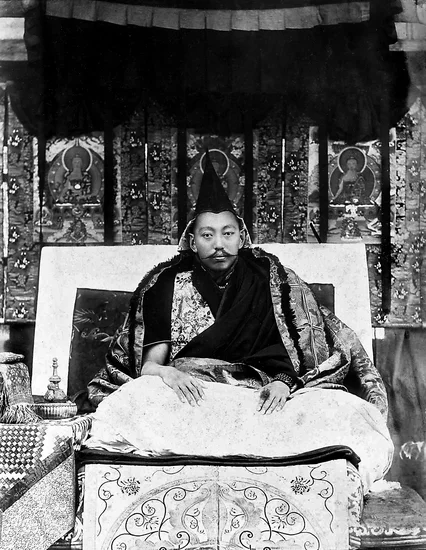
The 13th Dalai Lama formally declared Tibet’s independence from the Manchu Qing dynasty on this historic date. This bold proclamation ended decades of Chinese domination over the Tibetan plateau.
The declaration initiated nearly four decades of de facto Tibetan independence. This period represented Tibet’s last sustained attempt at self-governance before later Chinese intervention.
1931 – British Raj Capital Transfer Completed
The British colonial administration officially completed its monumental relocation from Calcutta to New Delhi. This transfer marked a strategic shift in imperial governance across the Indian subcontinent.
The move symbolized Britain’s commitment to centralizing power in a purpose-built capital. New Delhi’s grand architecture would serve as the seat of colonial authority for decades.
1960 – France Becomes Fourth Nuclear Power
France successfully detonated its first nuclear device, codenamed “Gerboise Bleue,” in the Sahara Desert. This achievement elevated France to the exclusive club of nuclear-armed nations.
The test demonstrated France’s technological independence and military prowess on the global stage. President de Gaulle’s nuclear program reinforced France’s position as a major European power.
2021 – Trump Acquitted in Second Impeachment Trial

The United States Senate voted to acquit former President Donald Trump following his second impeachment trial. The proceedings centered on charges related to the January 6 Capitol insurrection.
The acquittal highlighted deep political divisions within American society and Congress. This historic trial marked unprecedented territory in American constitutional law and presidential accountability.
2007 – Taiwan Opposition Leader Faces Corruption Charges
Ma Ying-jeou resigned as chairman of Taiwan’s Kuomintang party after being indicted on embezzlement charges. The charges stemmed from his previous tenure as mayor of Taipei.
Despite the legal challenges, Ma simultaneously announced his candidacy for Taiwan’s 2008 presidential election. His resignation created significant political upheaval within Taiwan’s opposition movement.
Military and Naval History on February 13
1945 – Siege of Budapest Ends
German and Hungarian forces surrendered unconditionally to the Soviet Red Army, ending the brutal siege of Budapest. This victory marked a crucial step in the Red Army’s advance toward Berlin.
The siege had devastated the Hungarian capital and claimed thousands of civilian lives. The city’s liberation accelerated the collapse of Nazi Germany’s eastern defenses.
1945 – Dresden Bombing Campaign Begins
Royal Air Force bombers launched a massive aerial assault on Dresden, Germany, beginning one of World War II’s most controversial bombing campaigns. The attack targeted this major German cultural and industrial center.
The bombing would continue for several days, causing widespread destruction and civilian casualties. This campaign remains one of the most debated Allied military actions of the war.
1951 – Battle of Chipyong-ni Commences
Chinese forces launched their assault on UN positions at Chipyong-ni during the Korean War. Military historians later described this battle as the high-water mark of Chinese advancement into South Korea.
The engagement tested both Chinese offensive capabilities and UN defensive strategies. The outcome would significantly influence the war’s subsequent trajectory and eventual stalemate.
1991 – Amiriyah Shelter Bombing
Coalition forces struck the Amiriyah shelter in Baghdad during the Gulf War, killing over 400 Iraqi civilians. Allied commanders claimed the facility served as a military communications center.
The tragic incident sparked international controversy about civilian casualties in modern warfare. The bombing highlighted the challenges of distinguishing military targets from civilian shelters during urban combat.
Science and Discovery Milestones on February 13
1967 – Leonardo da Vinci’s Lost Codices Discovered
American researchers made a stunning discovery at the National Library of Spain, uncovering the long-lost Madrid Codices by Leonardo da Vinci. These manuscripts had been missing for centuries.
The codices contained previously unknown engineering drawings and scientific observations by the Renaissance master. This discovery provided new insights into da Vinci’s mechanical inventions and scientific methodology.
2004 – Universe’s Largest Diamond Discovered

The Harvard-Smithsonian Center for Astrophysics announced the discovery of white dwarf star BPM 37093, the universe’s largest known diamond. Astronomers nicknamed this celestial body “Lucy” after the Beatles’ song.
The crystallized star measures approximately 2,500 miles in diameter and contains an estimated 10 billion trillion trillion carats. This discovery revolutionized understanding of stellar evolution and carbon crystallization in space.
1961 – Mysterious Olancha Artifact Found
Researchers discovered an allegedly 500,000-year-old rock near Olancha, California, that appeared to contain an encased spark plug. This anachronistic finding puzzled archaeologists and geologists.
The artifact challenged conventional understanding of geological processes and human technological development. Scientific analysis would later reveal more conventional explanations for this unusual formation.
Cultural and Arts Events on February 13
1914 – ASCAP Founded in New York
The American Society of Composers, Authors and Publishers established its headquarters in New York City to protect musicians’ copyrighted works. This organization revolutionized intellectual property protection for creative professionals.
ASCAP addressed the growing need for systematic royalty collection and distribution in the expanding music industry. The organization’s formation marked a crucial step in establishing artists’ economic rights.
1920 – Negro National League Formed
African American baseball leaders established the Negro National League, creating organized professional baseball for Black players. This league provided opportunities previously denied by segregated mainstream baseball.
The formation represented a significant milestone in African American sports history and civil rights progress. The league showcased exceptional talent that would later integrate Major League Baseball.
1955 – Israel Acquires Dead Sea Scrolls
Israel successfully obtained four of the seven Dead Sea Scrolls, securing these ancient biblical manuscripts for scholarly study. The acquisition represented a major archaeological and cultural achievement.
These manuscripts provided unprecedented insights into early Jewish and Christian religious practices. The scrolls’ preservation would enable decades of groundbreaking biblical scholarship and historical research.
Religious and Social Events on February 13
1960 – Nashville Sit-ins Begin
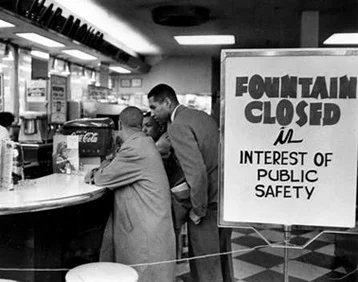
Black college students staged the first Nashville sit-ins at three lunch counters, challenging racial segregation in public accommodations. This coordinated protest launched one of the most successful desegregation campaigns.
The students’ nonviolent resistance inspired similar demonstrations across the American South. Their courage and persistence would help dismantle Jim Crow laws and advance civil rights progress.
2008 – Australia’s Historic Apology to Indigenous Peoples

Prime Minister Kevin Rudd delivered a formal apology to Indigenous Australians and the Stolen Generations in Parliament House. This historic speech acknowledged decades of government policies that separated Aboriginal children from their families.
The apology represented a watershed moment in Australian race relations and reconciliation efforts. Rudd’s words provided official recognition of past injustices and committed to healing historical wounds.
2011 – Umatilla Tribe Restores Bison Hunting
The Umatilla tribe harvested their first bison near Yellowstone National Park in over 100 years, restoring a centuries-old tradition. This historic hunt honored treaty rights signed in 1855.
The restoration represented a significant victory for Native American cultural preservation and sovereignty. The hunt reconnected tribal members with ancestral practices and spiritual traditions.
Business and Economic Events on February 13
1934 – Bruno Hauptmann Convicted
A Flemington, New Jersey jury found Bruno Hauptmann guilty of kidnapping and murdering the Lindbergh baby. The sensational trial captivated the American public and transformed criminal justice procedures.
The conviction ended one of the most publicized criminal cases in American history. The trial’s media coverage established new precedents for courtroom journalism and public legal proceedings.
1975 – World Trade Center Fire
A major fire broke out on the 11th floor of the World Trade Center’s North Tower in New York City. The blaze tested the building’s safety systems and emergency response procedures.
The fire caused significant property damage but demonstrated the effectiveness of modern skyscraper fire suppression systems. This incident led to improved safety protocols in high-rise buildings worldwide.
1984 – Konstantin Chernenko Assumes Soviet Leadership
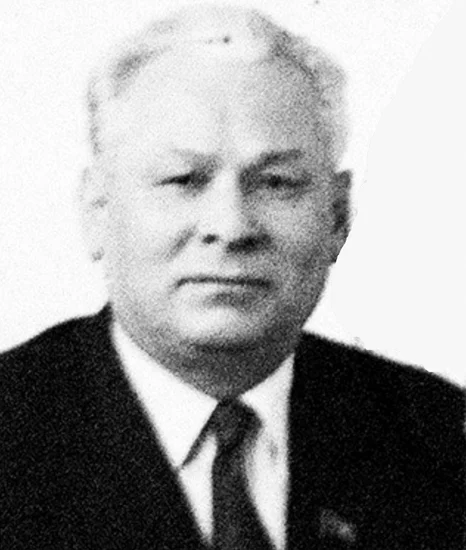
Konstantin Chernenko succeeded Yuri Andropov as General Secretary of the Communist Party, becoming the Soviet Union’s new leader. His appointment continued the gerontocracy that characterized late Soviet leadership.
Chernenko’s rise to power marked another transition in Cold War dynamics and Soviet domestic policy. His leadership would prove brief but significant in the USSR’s final years.
Transportation and Infrastructure on February 13
1978 – Sydney Hilton Bombing

A bomb exploded outside Sydney’s Hilton Hotel, killing three people including two refuse collectors and a police officer. The attack shocked Australia and prompted increased security measures.
The bombing occurred during a Commonwealth Heads of Government Meeting, raising concerns about international terrorism. The incident marked a turning point in Australian domestic security policies.
1979 – Hood Canal Bridge Collapse
Intense windstorms struck western Washington, causing a half-mile section of the Hood Canal Bridge to sink into the water. The collapse severed a crucial transportation link across Puget Sound.
The bridge failure isolated communities and disrupted regional commerce for months. The incident highlighted the vulnerability of coastal infrastructure to extreme weather events.
2010 – European Vega Rocket Debut
The European Space Agency successfully launched its first Vega rocket from the Kourou spaceport in French Guiana. This maiden flight marked Europe’s entry into the small satellite launch market.
The Vega program enhanced European space capabilities and commercial competitiveness. The rocket’s success demonstrated advanced European aerospace engineering and international cooperation.
Sports and Recreation on February 13
1954 – Frank Selvy’s Record-Breaking Performance
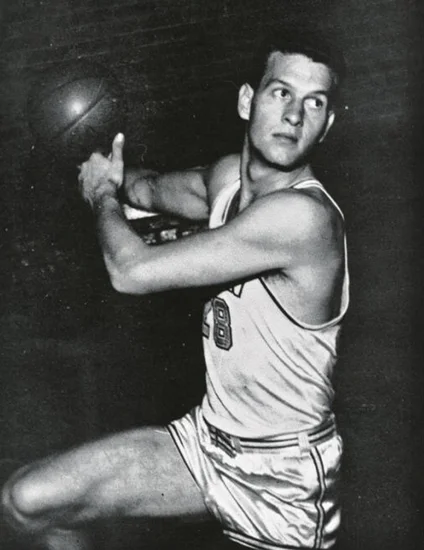
Frank Selvy became the only NCAA Division I basketball player to score 100 points in a single game, playing for Furman University. His remarkable achievement set an unbreakable collegiate basketball record.
Selvy’s scoring explosion captured national attention and elevated small-college basketball prominence. The performance remains one of college basketball’s most extraordinary individual achievements.
1996 – Nepalese Civil War Begins
The Communist Party of Nepal (Maoist-Centre) initiated the Nepalese Civil War, launching a decade-long insurgency against the monarchy. The conflict would transform Nepal’s political landscape.
The war highlighted deep social inequalities and political grievances within Nepalese society. The insurgency ultimately led to the abolition of the monarchy and establishment of a federal republic.
2001 – El Salvador Earthquake

A devastating 6.6-magnitude earthquake struck El Salvador, killing at least 315 people and causing widespread destruction. The disaster highlighted the country’s vulnerability to seismic activity.
The earthquake prompted international humanitarian assistance and reconstruction efforts. The tragedy underscored the importance of earthquake preparedness in Central America’s seismically active region.
Notable Births on February 13
1910 – William Shockley

Nobel Prize-winning physicist William Shockley was born in London, England, though he would later become an American citizen. His childhood fascination with electrical phenomena shaped his future scientific career.
Shockley co-invented the transistor at Bell Labs, revolutionizing electronics and computing technology. His groundbreaking work laid the foundation for the modern digital age and Silicon Valley’s emergence.
1920 – Boudleaux Bryant
American songwriter Boudleaux Bryant entered the world, destined to become one of country music’s most prolific composers. His musical talents would eventually reshape popular music.
Bryant, along with his wife Felice, wrote numerous hit songs for the Everly Brothers and other major artists. Their compositions helped define the sound of 1950s rock and roll.
1924 – Chuck Yeager
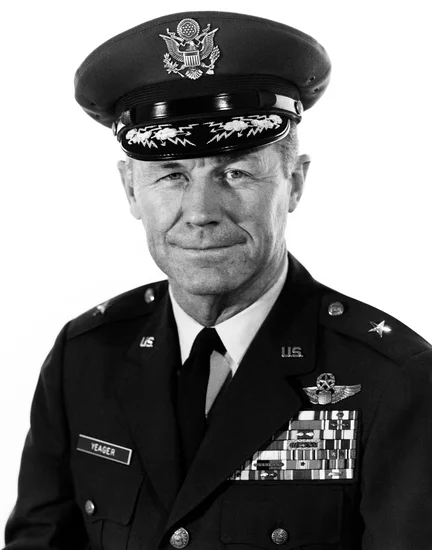
Test pilot Chuck Yeager was born in West Virginia, beginning a life dedicated to aviation and breaking barriers. His rural upbringing instilled the fearlessness that would define his career.
Yeager became the first person to break the sound barrier in level flight, piloting the Bell X-1. His achievements advanced supersonic flight technology and inspired generations of aviators.
1933 – Kim Novak

Hollywood actress Kim Novak was born in Chicago, Illinois, destined to become one of cinema’s most enigmatic stars. Her Midwestern background provided a stark contrast to her glamorous film persona.
Novak starred in classic films including “Vertigo” and “Picnic,” working with legendary directors like Alfred Hitchcock. Her performances defined 1950s Hollywood sophistication and mystery.
1944 – Stockard Channing

Actress Stockard Channing was born in New York City, beginning a career that would span theater, film, and television. Her versatility would make her one of America’s most respected performers.
Channing achieved fame in “Grease” and later earned critical acclaim in “The West Wing.” Her performances demonstrated remarkable range from musical comedy to political drama.
1950 – Peter Gabriel
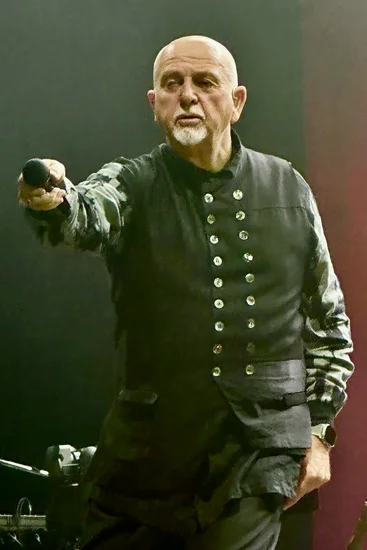
English musician Peter Gabriel was born in Surrey, England, destined to become one of rock music’s most innovative artists. His early musical experiments would revolutionize popular music.
Gabriel co-founded Genesis before launching a groundbreaking solo career that incorporated world music influences. His pioneering use of music videos and technology transformed artistic expression.
1974 – Robbie Williams

British pop star Robbie Williams was born in Stoke-on-Trent, England, beginning a journey to international superstardom. His charismatic personality would captivate audiences worldwide.
Williams achieved massive success as a member of Take That and later as a solo artist. His performances combined pop sensibility with theatrical flair, making him one of Britain’s biggest entertainers.
Notable Deaths on February 13
1958 – Christabel Pankhurst

British suffragette leader Christabel Pankhurst died, ending a life dedicated to women’s rights activism. She co-founded the Women’s Social and Political Union with her mother Emmeline.
Pankhurst’s militant tactics and strategic leadership advanced the cause of women’s suffrage in Britain. Her death marked the end of an era in the fight for gender equality.
1958 – Georges Rouault
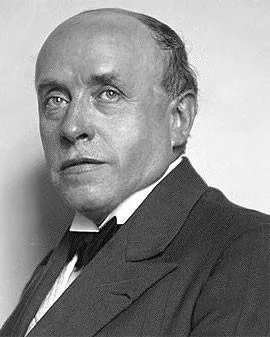
French artist Georges Rouault passed away, concluding a career that bridged Fauvism and Expressionism. His deeply spiritual paintings reflected personal religious conviction and social concern.
Rouault’s work featured bold colors and emotional intensity, particularly in his religious subjects and social commentary. His artistic legacy influenced generations of modern painters.
1976 – Lily Pons

French-American opera soprano Lily Pons died, ending one of the most celebrated operatic careers of the 20th century. Her coloratura voice captivated audiences at the Metropolitan Opera for decades.
Pons achieved rare crossover success, appearing in Hollywood films and popular recordings. Her performances helped bring opera to broader American audiences during the mid-20th century.
2002 – Waylon Jennings

Country music legend Waylon Jennings passed away, concluding a career that revolutionized country music. His outlaw country style challenged Nashville’s conservative musical establishment.
Jennings, along with Willie Nelson and others, created a more authentic, rock-influenced country sound. His rebellious spirit and musical innovation transformed country music’s artistic boundaries.
2016 – Antonin Scalia

Supreme Court Justice Antonin Scalia died unexpectedly, ending a transformative judicial career spanning three decades. His originalist interpretation of the Constitution influenced conservative legal thinking.
Scalia’s wit, intellect, and passionate advocacy for textualism shaped Supreme Court jurisprudence. His death created a significant vacancy during a presidential election year, intensifying political debate.
Holidays and Observances on February 13
World Radio Day
The United Nations designates February 13 as World Radio Day, celebrating radio’s enduring power to connect communities worldwide. This observance honors radio’s role in education, information dissemination, and cultural preservation.
Radio remains a vital medium for reaching remote populations and providing emergency communications. The day highlights broadcasting’s continued relevance in our digital age.
Black Love Day
February 13 is celebrated as Black Love Day in the United States, promoting positive relationships within African American communities. This observance emphasizes love, commitment, and family strength.
The holiday provides an alternative to traditional Valentine’s Day celebrations while highlighting Black cultural values. Communities organize events that celebrate healthy relationships and family bonds.
Children’s Day in Myanmar

Myanmar observes Children’s Day on February 13, focusing national attention on youth welfare and education. Schools and communities organize special activities celebrating children’s potential and rights.
The observance emphasizes the importance of nurturing young people for national development. Educational institutions use this day to promote literacy and child protection awareness.
